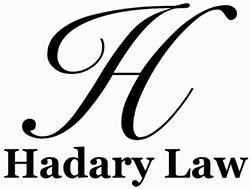Title Insurance
Investigation of title is one of the main tasks entrusted to a real estate lawyers handling a purchase. A real estate lawyer is required to ensure that his client is getting good and marketable title to the subject property. In the past, before title insurance was introduced into the Province of Ontario, lawyer would provide a certification of title, which is a through investigation of title, otherwise known as “Title Opinion”. Indeed, nowadays, a purchaser would have difficulties getting a Title Opinion in the price of title insurance policy. Insurance companies are used an instrument of disbursing the cost of an insurable event over every customer who purchased a policy, thus allowing it to cover over deficiencies such as those that would become apparent from a recent survey.
When Title Opinion is issued for a given purchase, it investigates title up to the point of closing. Thereafter, if any defects arise which may influence title, such as fraudulent registrations, then naturally Title Opinion cannot deal with it and the homeowner may be left without recourse at all. However, when purchasing title insurance, numerous title deficiencies are covered, including those who were created or became apparent only after closing.
The acquisition of title insurance does not exempt lawyers from investigating title, as the insurance company utilizes the lawyer’s investigation as basis for assessing risk and pricing the policy accordingly. Furthermore, title insurance providers may decide to exclude some known defects from coverage, thus reducing their liability and allowing the home owner to enjoy regular premium pricing.
Title insurance is composed of two types of policies: homeowner’s policy and lender’s policy. Naturally, the homeowner’s policy protects the purchaser from title defects, boundary issues, access issues and many other types of problems. The lender’s policy would reduce the risk to which the lender is exposed should its security be influenced by title defects. Some lender’s demand title insurance and others only demand to be notified if a policy is not purchased and substituted with title opinion. The risk assumed by the lender is mitigated by the existence of title insurance, thus allowing better interest rates. Interest rates are generally influenced by the degree of risk assumed.
Title insurance policies will remain in effect as long as the registration status on title is preserved. Therefore, if a homeowner sells its property, or adds a new person on title, the exiting policy shall come to an end. Similarly, lender’s policy shall remain in effect until the mortgage is refinanced or discharged. Some major variations to a mortgage may also revoke an existing policy, and thus it is your lawyer’s obligation to check with the insurance company the effects of his actions on the client’s existing coverage.
There is a simple rule in the world of insurance: misrepresentation will void a policy. That is, if a misrepresentation has been made to the insurer, the beneficiary cannot expect to receive coverage when the due day comes around. If one misrepresents to an insurance company, one may run the risk of disallowed coverage.
Title insurance will cover over title defects which affect the registrations found on title. Any liens or mortgages paid out but remain undischarged on title, notices which affect the use of the property, and against title fraud etc. title insurance will also cover over
Client often ask in “cash deals” (where no mortgage is used to purchase the property) as to the rational of buying it when no lender is involved in the transaction. In reality, those purchasers that hold 100% equity in their property have a very significant interest in purchasing such a policy. Think about it, if fraud occurs on a property that has no mortgage, then that means that the homeowners may lose all of his money. Whereas, when the property is subject a secured financing for the purchase, the homeowner is actually risking someone else’s money.
Title insurance will also cover over “off title defects” such as unpaid property taxes or any other unpaid debts which may be rolled into the property’s tax bill, as well as access issues. If a homeowner uses a land to access the parking pad at the back of his property, passage which is suddenly challenged by the neighbour which owns that lane, and subsequently lost, then the homeowner may lose access to his property and the use of his parking spaces. This could affect the usability of this property and its value. This is actually not a rare situation, particularly in old cities such as Toronto etc. where decades and centuries have created a complicated land use environment.
Title insurance will also cover over any work orders issued by the city or open work permits that have never been properly closed by the previous owner.
The main companies in this market are First Canadian Title (FCT), Stewart Title, Chicago Title, and TitlePlus. Most lawyers will purchase from one of these companies. There significant differences between these companies in terms of standard coverage etc. and it is the responsibility of your lawyer to shop around for the best coverage your money can buy.
